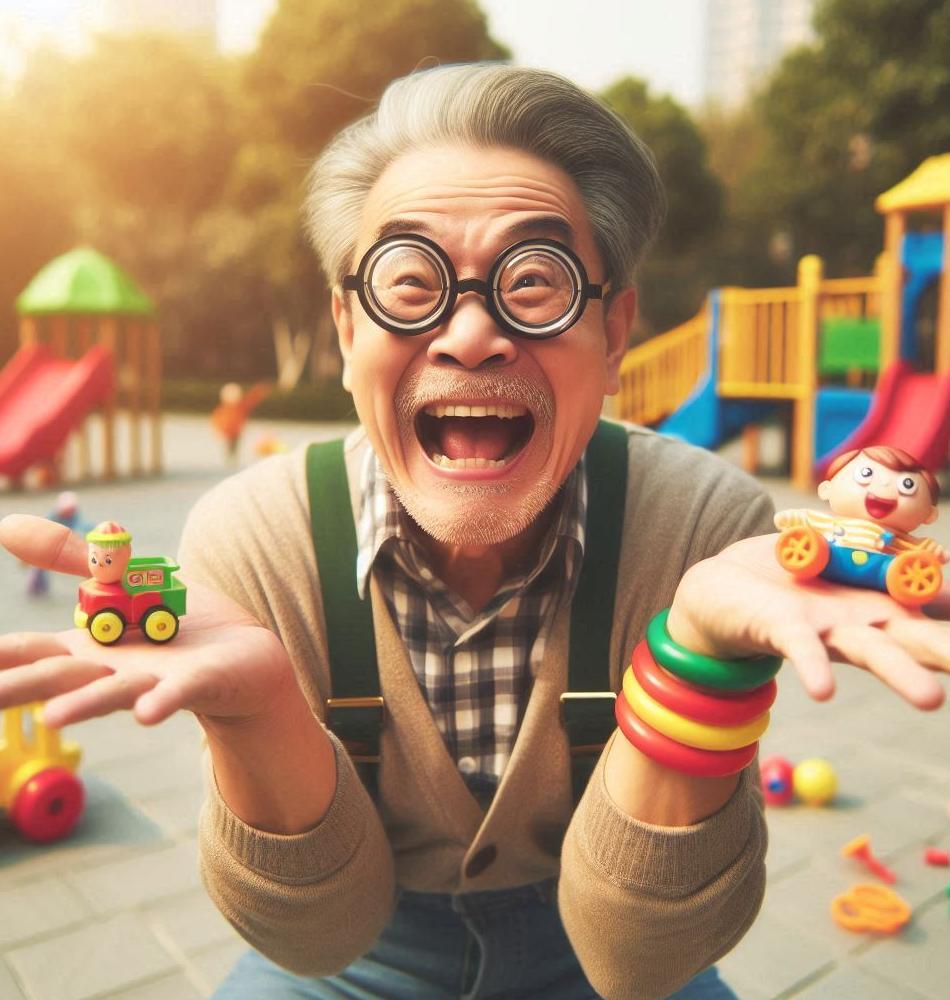In today's ever-evolving world of psychology, one intriguing phenomenon that has garnered attention is the way certain mental disorders can lead individuals to exhibit childlike behavior. But what exactly triggers such a regression? Can it be attributed to stress, trauma, or is it a symptom of a deeper disorder? This article will explore the fascinating aspects surrounding mental disorders that may cause adults to act like children, diving into the science behind the behavior and its implications for daily life.
The Basics of Childlike Behavior in Adults 🧩
Childlike behavior in adults can manifest in various ways and can stem from several mental health disorders. It may not always signify immaturity; rather, it can be indicative of emotional distress or unresolved childhood issues. Understanding these characteristics is essential in unpacking the complexities of such behavior.
Common Signs of Childlike Behavior
Adults exhibiting childlike behavior often show:
- Innocent curiosity about the world
- Fantasies or imaginative thinking
- Difficulty with emotional regulation
- Impulsive actions without considering consequences
- Inability to handle adult responsibilities
Childlike Behavior and Specific Mental Disorders 🔍
Various mental disorders can lead individuals to revert to childlike behavior. Let's delve into some of the key players that can trigger this phenomenon:
1. Dissociative Identity Disorder (DID) 🌀
DID is often characterized by the presence of two or more distinct identities within an individual. These identities can vary widely in age and personality, which sometimes includes childlike personas. This often stems from traumatic experiences, where the mind creates alternate identities as a coping mechanism.
Symptoms of DID
- Presence of multiple distinct identities
- Amnesia regarding specific time periods
- Extreme emotional fluctuations
2. Post-Traumatic Stress Disorder (PTSD) 🎭
Adults with PTSD often experience regressive behaviors as a response to trauma. In facing overwhelming memories or triggers, individuals may return to simpler, childlike behaviors as a form of escapism or emotional protection.
Common Triggers of PTSD
- Experiencing accidents or natural disasters
- Witnessing a violent act
- Childhood abuse or neglect
3. Autism Spectrum Disorder (ASD) 🌈
While ASD primarily presents during childhood, certain traits can persist into adulthood, potentially leading to childlike behavior. Adults with autism may have difficulty with social interactions, emotional understanding, and may display obsessive interests often associated with children.
Characteristics of Adults with ASD
- Difficulty in social situations
- Inability to interpret social cues
- Intense focus on specific topics
Impacts of Acting Childlike 🤔
Exhibiting childlike behavior can have profound implications in an individual's life. It can affect relationships, career paths, and an overall sense of self. Understanding these effects is crucial for providing support and finding ways to cope.
Effects on Relationships
Childlike behavior can often create strain in adult relationships, including romantic partnerships and friendships. Partners or friends may feel burdened by the inability to connect on a mature level, leading to frustration or resentment.
Challenges in the Workplace
Adults who display childlike behavior can face difficulties in their careers. Employers may perceive them as less capable of handling responsibilities or making decisions, leading to potential job loss or underemployment.
Potential Treatment Options 🏥
Identifying the underlying causes of childlike behavior is essential for effective treatment. Approaches may include:
1. Therapy 🛋️
Various forms of therapy, such as cognitive-behavioral therapy (CBT) and play therapy, can help individuals process unresolved trauma and develop healthier coping mechanisms. The therapeutic relationship might assist in reestablishing mature emotional responses.
2. Medication 💊
In some cases, medication may be necessary to help manage symptoms associated with the disorder, including anxiety and depression. Consultation with a mental health professional is crucial to determining the appropriate course of action.
3. Support Groups 🤝
Connecting with others who experience similar challenges can provide invaluable support. Support groups can foster understanding, validation, and a sense of community among individuals navigating their mental health journeys.
Frequently Asked Questions ❓
- What causes adults to act like children?
- Can childhood trauma lead to childlike behaviors?
- Are there effective treatments for adults who exhibit childlike behavior?
- Is acting childlike always a sign of a mental disorder?
- How can friends and family support someone displaying childlike behavior?
Seeking answers to the questions above can help demystify childlike behavior and create pathways to understanding mental health complexities.
Frequently Encountered Misconceptions About Childlike Behavior 🔦
There are several misconceptions surrounding the nature of childlike behavior, often leading to stigma or misunderstanding. It is crucial to clarify these misconceptions to foster a more empathetic response towards affected individuals.
1. Childlike Behavior Equals Immaturity
It is essential to recognize that this behavior may arise from a place of distress rather than mere immaturity. Adults experiencing mental disorders can exhibit these traits as a protective mechanism, hence it is essential to approach the topic with sensitivity.
2. All Individuals Displaying Childlike Behavior Have a Mental Disorder
Exhibiting moments of childlike joy does not automatically signify the presence of a mental disorder. Many individuals can experience playful or innocent moments without the underlying complications of a psychological issue.
3. Childlike Behavior is Always Harmful
In some contexts, embracing one's childlike side can lead to creativity, exploration, and joy. It can be a beneficial aspect of self-expression when balanced with emotional maturity.
Conclusion 📝
Understanding the mental disorders that may cause adults to act like children involves recognizing the complexities of human behavior and emotional experiences. Many factors, including unresolved trauma and psychological conditions, contribute to this phenomenon. By fostering a compassionate dialogue around childlike behaviors, we can better support those who find themselves grappling with the emotional remnants of their childhoods, ultimately paving the way for healing and self-discovery.

